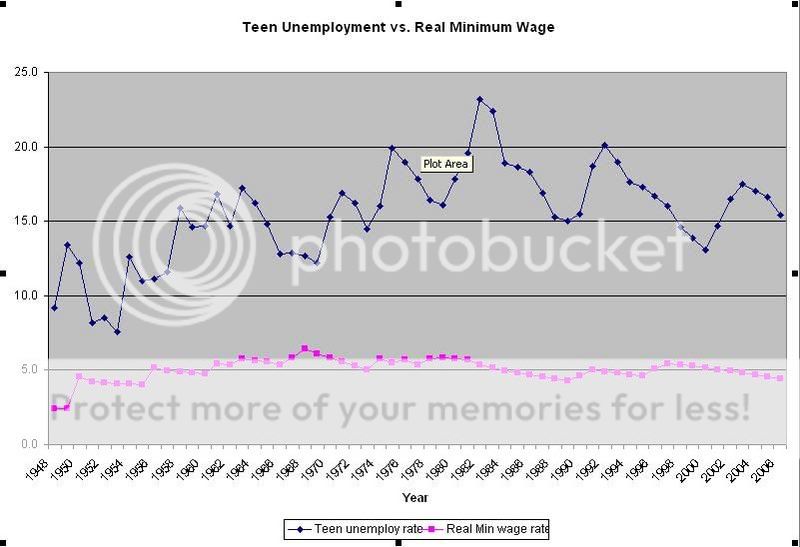The lack of correlation suggests to me that the MW has not had a significant effect on teen unemployment relative to other factors, like the economy.
your post suggests to me that you have no business looking at any sort of data.
You're certainly entitled to your opinion. I presented the data. Maybe you see correlations I don't. Folks can make their own conclusions about it.


